Meet the 2022 JEDI Champions
The Stanford Postdoc Champions: Community Impact Awards serve to highlight the individual contributions of postdocs whose service fosters belonging and uplifts their communities. These awards provide a democratic way to acknowledge the work of postdoctoral scholars, and amplify the spirit of inclusion and service set by Stanford University.
Displaying 16 fellows
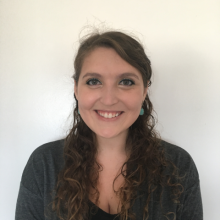
Stephanie Bachas-Daunert
Faculty Mentor:
David Relman
I am passionate about creating inclusive spaces and increasing diversity in STEM. I strive to include DEI principles in my research and community outreach. My scientific research investigates the effects of environmental contaminants on the human gut microbiome in an underserved population in Bangladesh. I have also performed research with the d.school/School of Education’s REDLab Research in Education Design team, focusing on increasing accessibility to STEM and design thinking. On campus, I serve on the SURPAS JEDI committee and co-organize the Better Ally event series, a monthly workshop focused on improving allyship to marginalized communities. This work was awarded the Second Place Poster Prize at the National Postdoctoral Association Conference, and I hope will serve as an event model for other postdoctoral institutions. I am also active in the Women’s Community Center and mentor graduate students from underrepresented groups.
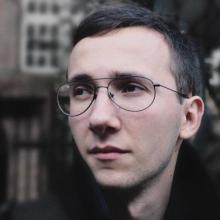
Constantin Basica
Faculty Mentor:
Patricia Alessandrini
A thriving community is very important to me, so I spare no effort to foster inclusive and supportive environments. I strive to make musical experiences accessible and welcoming to all through teaching, mentoring, and providing technical assistance. During the pandemic it has been rewarding to facilitate real-time performances online by advising musicians at Stanford and beyond. At CCRMA I am excited to curate concerts with artists from diverse backgrounds while also collaborating on artistic and research projects. We are developing an AI-based system that would allow anyone, regardless of physical ability or disability, to play electronic instruments with their brain.

Vimala Bharadwaj
Faculty Mentor:
David Yeomans
As a female Indian immigrant residing in the United States, I am sensitive to the challenges that women of color face in academics. Through my grad school and postdoctoral training, I have looked for ways to inspire young minds, promote women researchers and build a welcoming academic community. I have volunteered at Connect2STEM and Girls in STEM events. I served as the social media chair as part of the Graduate Women in Science (GWIS) Arizona chapter. At Stanford, as part of the SURPAS leadership team, I’ve been involved to build a strong community and provide an efficient platform for all postdocs to connect, engage and communicate.

Vinita Bharat
Faculty Mentor:
Xinnan Wang
As a woman in STEM, I have developed an appetite to communicate science with JEDI principles to a broader audience. I have actively participated in various outreach initiatives and mentorship roles with a commitment to DEI-B principles for both specialists (PhDs and postdocs) and non-specialist audiences (old age homes, refugees in Afghanistan, Iran, and Turkey) at Stanford and beyond. Through my experience of running a science communication platform “Fuzzy Synapse” since 2017, I have learned and consciously made efforts to be mindful of representation and inclusion in my work. I hope to grow, contribute and collaborate in STEM with JEDI.

Jingxun Chen
Faculty Mentor:
Anne Brunet
When I immigrated to the US alone at 15, being a scientist was not my dream. I barely understood English and struggled with low income and family separation. But my teachers welcomed me, encouraged me, and gave me a community where I felt belonged. This sense of belonging is what I want to create at Stanford. As the peer-mentoring Someone Like Me program coordinator, lab mentor, and postdoc representative for the DEI Education and Standard Action Planning Workgroup, I want to care for those with less power and “invisible,” by creating new institution infrastructures or by simply having open-hearted conversations.
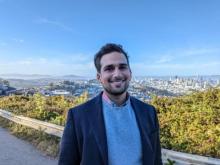
Santiago Correa
Faculty Mentor:
Eric Appel
My motivations in working on these issues is to provide community and resources for students and trainees that are at pivotal moments in their careers. As someone coming from a historically excluded background, I find motivation by thinking about how today's efforts could have helped a past version of myself, and how they could help someone in a similar position today.
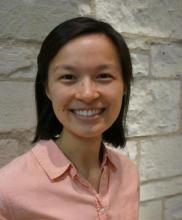
Andrea d'Aquino
Faculty Mentor:
Eric Appel
Dedicated mentors have played a crucial role in my success as a scientist and learner. I never could have imagined having the opportunity to attend college—let alone graduate school or a postdoc position—however, with the support and encouragement from mentors, I’ve had the opportunity to pursue my dreams and make meaningful impacts on the world through science. The impact that mentorship has had on my life has motivated me to give back to the scientific and general community through mentorship and outreach. I am motivated to continue to make science and education a more equitable and inclusive space.

Shawna Follis
Faculty Mentor:
Christopher Gardner
Achievement of excellence in diversity and inclusion resonates as a defining characteristic at the intersection of my academic experience and career goals. I view social justice as personal and social growth informed from marginalized scholarship including critical race theory, intersectional theory, and decoloniality. As such, my JEDI work is motivated by existing community based efforts to make our society more fair, just, and equitable. A father of Epidemiology, W.E.B. Du Bois described the double consciousness, in which scientific knowledge is enhanced by the unique perspective of scientists from structurally marginalized communities. As an Epidemiologist, I work for equitable representation through mentorship and advocacy to improve research and science dissemination that rebuilds medical trust and improves vast racial health disparities.

Harini Iyer
Faculty Mentor:
William Talbot
My commitment to diversity is informed by my experiences as a woman of color in science and a first-generation immigrant to the United States. In the over 10 years I have spent in the United States, I am extremely fortunate in having been a part of academic and social communities that made me feel largely included. Simultaneously, I also appreciate that much needs to be done to enhance diversity, equity, and inclusion within academia. I am passionate about actively fostering an inclusive training environment and I will earnestly work towards the retention of a more diverse academic community.
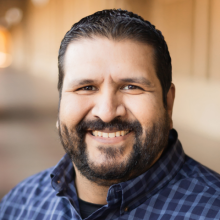
Pedro Monarrez
Faculty Mentor:
Erik Sperling
My biggest motivation in JEDI space is to help bring justice, equity, diversity, and inclusion into my immediate workspaces and academia at large. Everyone who wants to be an academic, to learn, innovate, and contribute to society, have the right to grow and learn and work in academia. It is my passion to help those who want to be academics and ensure they can pursue their dreams.
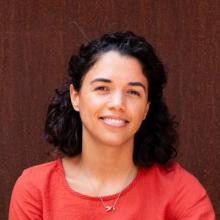
Amber Moore
Faculty Mentor:
Sean Bendall
Higher education affords immense privilege. The knowledge, resources, and networks gained are instrumental in career (and community!) development. For this reason, I’ve spent my career helping individuals from communities that have been systematically excluded from academia gain entry. However, higher education also causes harm. Race, gender, and power dynamics determine how much capital trainees can actually build and maintain. From discrimination to the lack of institutional support and accountability, integration into academia often requires a disconnection from self, which undermines our flourishing, conceals our best selves, and preserves systemic oppression. Now, I focus on cultural transformation. We need to reimagine the spaces we occupy; challenge tradition, expect mess, and collectively build ethical futures.
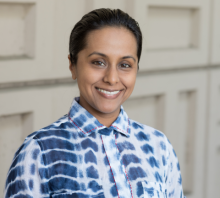
Shaila Musharoff
Faculty Mentor:
Jonathan Pritchard
I am motivated to support underrepresented minorities (URMs) in science and higher education, particularly those who have intersectional identities. As part of my work with the LGBTQ+ Postdocs and oSTEM, I am most proud of increasing access to necessary resources and creating lasting, caring communities. As a co-creator of the Genetics Advocacy Committee, my efforts to build a more equitable department resulted in changes at the student and organizational level, which has inspired me to continue this work as a faculty member. Beyond Stanford, I empower people to follow their scientific paths, such as by mentoring URM students at SFSU.
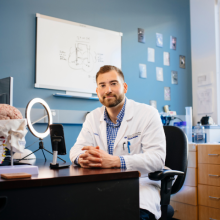
Ben Rein
Faculty Mentor:
Robert Malenka
Outside of my postdoc research, I share educational videos on social media apps such as Instagram and TikTok. In my time on these platforms, I've connected with extraordinary and enthusiastic students across the globe, though I have learned that opportunities to engage in science are not equally accessible to all. To address this, I founded the Aspiring Scientists Coalition, an organization that provides guidance and support to students in more than 75 countries. ASC hosts free online meetings including Q&As with professionals in various fields, networking sessions, and research presentations. I also lead a video series on social media called “Scientips” which provides free career advice to students globally, and offer free resources on my website such as a CV template, sample research poster, and PhD interview schedule. I strongly believe in the importance of lending a hand to the next generation, and it is critical that this support is extended to all communities, regardless of socioeconomic, educational or racial factors.
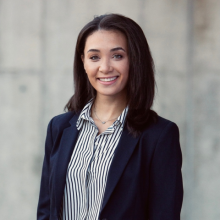
Epiphani Simmons
Faculty Mentor:
Marion Buckwalter
I owe my success, academic and otherwise, to the myriad of shoulders that have supported me throughout my life. As such, my commitment to community is a homage to those who invested in my journey. I work towards establishing equity while empowering diverse and underrepresented groups. This year, I take pride in working with the Aspiring Scientists Coalition’s international platform and sharing how socioeconomic and racial disparities are unjust risk factors for poor health outcomes. My work also includes collaborating on a documentary series with Westbrook media and MomBAE, driven to educate broad communities on the Black maternal healthcare crisis.
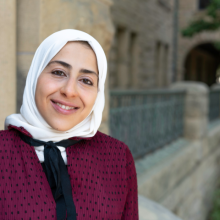
Alaa Youssef
Faculty Mentor:
David Larson
My passion to advance justice, equity, diversity, and inclusion (JEDI) is rooted in my personal and professional identities. Both my positive and negative experiences have enabled me to recognize that my identity, voice, knowledge, and cultural humility are levers for advocacy and capacity building. This year, I’ve proudly led the development and implementation of the AIMI AI Summer 2022 Internship Program and the Stanford Radiology AI Development Summer Program. I also mentored and co-developed a medical AI project for the Stanford HAI AI4ALL Summer Camp. These leadership opportunities have allowed me to embed JEDI into the design, recruitment, mentorship, and training of tomorrow’s AI leaders. I have helped organize the 2022 Diversity in Radiology and Molecular Imaging Annual Conference dedicated to promoting racial diversity, women leadership in radiology and community engagement.
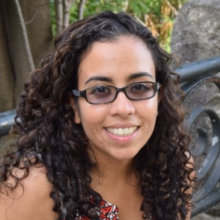
Zlitni Zlitni
Faculty Mentor:
Ami Bhatt
My core values of integrity, service, and justice have guided me throughout my scientific journey to use education to promote diversity, inclusion, and community outreach. I truly believe that science should be accessible to everyone and I deeply care about doing my part to achieve this goal. My commitment to promoting diversity and inclusion in academia is grounded in my years of mentoring STEM students from underrepresented communities including women, first-generation and economically-underprivileged students. Watching my mentees not only complete but excel in their research is one of the most fulfilling facets of my career.